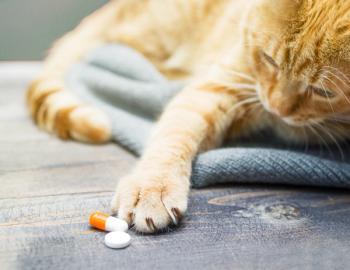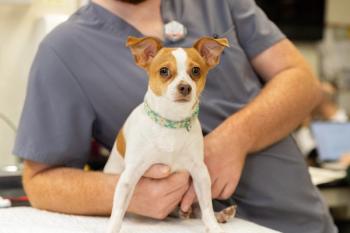
Insects could help turn farm food waste into sustainable livestock feed at industrial scale
Black soldier fly larvae could offer a more environmentally friendly alternative to conventional feed ingredients such as soy and fishmeal, according to researchers.
Researchers have found a sustainable and large-scale way to turn farm food waste into animal feed using black soldier fly larvae. In a study published in the Journal of the Science of Food and Agriculture Reports, scientists from Kent University in Canterbury, England tested a novel bio-conversion unit (BCU) designed to produce black soldier larvae at an industrial scale for use as livestock feed additive. A BCU is a machine that uses living organisms to turn organic waste into an energy source. The researchers found that the larvae grown on food waste with the new BCU provided a nutritious, high-quality protein source for livestock feed.
The insects could offer a more environmentally sustainable alternative to conventional feed ingredients such as soy and fishmeal, the researchers said, especially as global demand for animal products continues to rise1 and environmental concerns grow. The solution could also help tackle food waste and lower the cost of livestock feed production.
Unlike the common house fly—Musca domestica L— the black soldier fly is not known to carry disease, making this insect a better candidate as an insect food source than the common house fly. Black soldier flies also do not require many nutrients during their adult stage, as they mainly rely on nutrients obtained during their larval stage—these flies need mostly only water to survive.1
Despite their minimal nutrient requirements, black soldier flies yield larvae that contain 42%–45% crude protein and 31%–35% crude fat by dry weight.1 According to the study, larvae recover fats and nutrients from the organic waste they consume.
“[These fat and protein levels] makes the [black soldier fly larva] a good source of both fat and protein and, therefore, a possible feed additive for animals or even as food for humans,” the researchers wrote.1
For the study, researchers examined how different waste-based diets affected the larvae’s gut microbiome when raised at a large scale. They found that larvae grown in the BCU on low-bioburden substrate (waste with few germs) had similar or higher protein and fat levels than those fed traditional animal feed. The larvae grown on this farm food waste also showed higher calcium levels, as well as other key nutrients, further supporting this insect’s potential as a nutritious and sustainable feed source for livestock.
The BCU used in the study was tested at Bank Farm in Aldington, Kent, UK. The system was developed by the UK-based startup Inspro, a bio conversion hub producer.
According to the study, further research will involve better optimizing the larvae’s microbiome and using their waste, called frass, as a fertilizer.
“This research is beginning to uncover the vast and diverse potential [of black soldier fly larvae],” Richard Small, founder of Inspro, said in a report by the International Magazine for Animal Feed & Additives Industry.2 “The amino and fatty acid profiles in [black soldier fly larvae] offer benefits that exceed their macronutrients.”
“Food from livestock fed on insects have a lower environmental impact.... Ongoing research is essential if we are to better value the huge quantities (10 million tonnes) of food waste produced in the UK every year. This excludes animal wastes such as dairy slurry in which [black soldier fly larvae] have a pivotal bioremediation role, subject to amendments to UK regulations and ongoing research,” Small continued.
According to Feed & Additive, with funding, the research team is also exploring ways to use the larvae’s waste as a regenerative agricultural product to improve soil health and crop growth on farms.2
References
- Edwards WJS, et al. Bridging lab and industry: The impact of a bio-conversion unit on black soldier fly larvae production. J Sci Food Agric Rep. 2025.
https://doi.org/10.1002/jsf2.70010 - BSFL research shows promise for eco-friendly feed. International Magazine for Animal Feed & Additives Industry. September 29, 2025. Accessed October 13, 2025. https://www.feedandadditive.com/bsfl-research-shows-promise-for-eco-friendly-feed/
Newsletter
From exam room tips to practice management insights, get trusted veterinary news delivered straight to your inbox—subscribe to dvm360.





